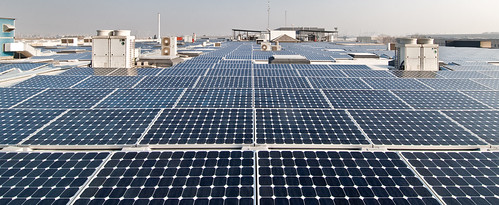World Day of Cities (31 October)
Technology has revolutionised the traditional concept of the city. Its application in all areas of society has helped to create what are known as Smart Cities. Their purpose is to improve the quality of life for their citizens and make cities more efficient. COMSA EMTE contributes to these principles through all its business lines.
In the field of railway infrastructure, the group maintains its commitment to sustainable mobility. In this regard, it has constructed line L9 of the Barcelona Metro, the longest suburban line in Europe with a length of 50 kilometres and covering various municipalities. It is a fully automated line with an electrical system connected to the high-voltage grid which allows a reduction in energy costs. In addition, interconnected traction substations have been installed to improve the utilisation of the energy recovered by the trains.
Energy efficiency is also one of the pillars of smart cities. Among other projects, COMSA EMTE has been working for the Gran Teatro del Liceu in Barcelona, carrying out the modernisation and unification of the control system for the electrical installations to facilitate more reliable and efficient distribution, and has renovated the cooling production plant to improve performance and reduce energy consumption. This work was recognised with the Catalonia EMAS award for the best environmental implementation in 2011.
Among the smart initiatives that COMSA EMTE is carrying out at the environmental level, it is worth highlighting the pneumatic urban waste collection project in district 22@ of Barcelona, where collection points at ground level and also underground storage containers have been installed, thus avoiding unpleasant odours in the area. The waste is transported via underground pipes to a single centralised point of collection.
Finally, the technical area of the group is working on benchmark European Smart Cities R&D projects. One of these, Urbanite, aims to develop an energy management system to integrate renewable resources, energy storage and ICT systems in buildings and urban areas, thus reducing energy losses and CO2 emissions. The Solprocel project, meanwhile, focuses on the development of transparent organic photovoltaic cells for use in collecting solar energy through windows, glass facades and other architectural components in order to increase the electricity generating surface in building envelopes.








